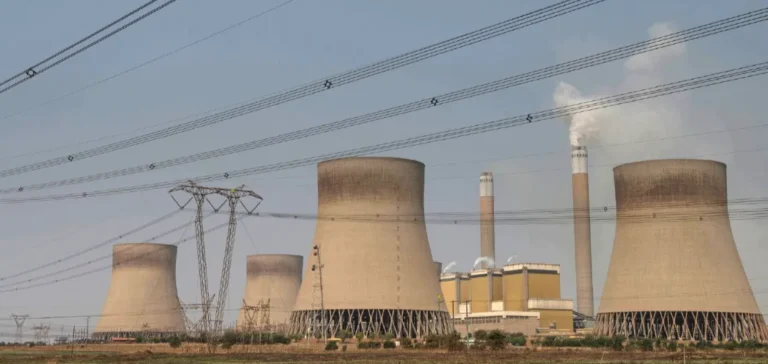South Africa has announced the preparation of a new public investment programme in the nuclear sector, aiming to develop 5,000 megawatts (MW) of capacity. The initiative was confirmed by Minister of Electricity and Energy Kgosientsho Ramokgopa during a G20 ministerial meeting on nuclear energy held in Durban. The project is part of the government’s effort to stabilise a heavily strained power grid subject to frequent outages.
A grid weakened by persistent outages
The instability of South Africa’s electricity system has worsened in recent years. In 2023, the country experienced 332 days of load shedding, compared to 205 in 2022. In response, authorities have opted to revive nuclear power to ease pressure on the grid and reduce dependence on coal. According to data from the World Nuclear Association, 84% of the country’s electricity production in 2022 came from coal, compared to only 4% from nuclear and around 10% from renewable sources.
The 5,000 MW project marks the first major nuclear expansion since the extension of the Koeberg plant, the country’s only commercial nuclear facility, commissioned in 1984. No new unit has been built since.
A programme led by a public entity
The development of this new capacity will be carried out in partnership with the South African Nuclear Energy Corporation (NECSA), the public body responsible for the development of civil nuclear energy. The government is expected to announce further operational details, including selected sites, technology providers, construction budget and commissioning schedule, once the project is approved by Cabinet.
The South African government is relying on its own expertise to lead this programme, at a time when several African countries are also turning to nuclear energy. Egypt, Ghana and Nigeria are among those that have launched or are preparing similar projects.
A strategic positioning for South Africa
Through this public investment, South Africa aims to strengthen its energy independence and supply security. The development of nuclear capacity comes at a time of high pressure on the grid, affecting both households and industrial activity.
“We have the skills, experience and infrastructure necessary to carry out this programme,” said Kgosientsho Ramokgopa on the sidelines of the event.






















